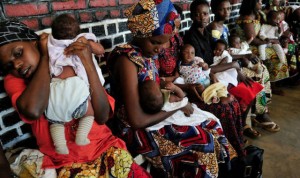Confirming the poor funding for family planning in Nigeria, Adewale said, “If these three commodities are used, pregnant women will not be dying because family planning is said to reduce maternal mortality rate by up to 30 per cent. “Nigeria has its implementation plan and that is why we are here today to see what the partners have done since 2013 so we can scale it up.”
On his part, the coordinator of the Reproductive and Family Planning arm of Pathfinder International Nigeria, Dr Habeeb Salami said although the federal government procures and distributes 13 family planning commodities to the states to reduce maternal mortality rate, less than 10 per cent of the 36 states fund the programme. In 2012, the United Nations Committee on Women and Children identified 13 commodities which it said can save lives if readily available in Nigeria.
Three of such are key to family planning and they are, emergency contraceptive, implant and the female condom which the Civil Society for Family Planning (CSFP), Pathfinder and the Association for Reproductive & Family Health (ARFH) started promoting since 2013. Dr. Salami said although many states apart from Lagos have lean budget for health, the present economic crisis has worsened the funding for family planning. “If I am to assess all the states, I will say less than 10% of them in this country are the ones working hard on family planning, the rest are not. We have been working with various stakeholders to ensure that states get a budget line for family planning and ensure that the money is released,” he said.
He said the rate at which families and states are accepting the programme is growing adding that, “the family planning budget is low. Even when it is budgeted for, the money is not released may be due to cultural beliefs or so. “But the practice is meant to improve the economy and better wellbeing. Governors in the states are beginning to see this and are accepting it gradually,” Adewale noted.
Source:Leadership online

 Experts have said maternal mortality rate is on a steep increase in the country largely due to poor funding,ignorance, and underutilization of the 13 essential life-saving commodities for women and children recommended by the United Nations.
Experts have said maternal mortality rate is on a steep increase in the country largely due to poor funding,ignorance, and underutilization of the 13 essential life-saving commodities for women and children recommended by the United Nations.




